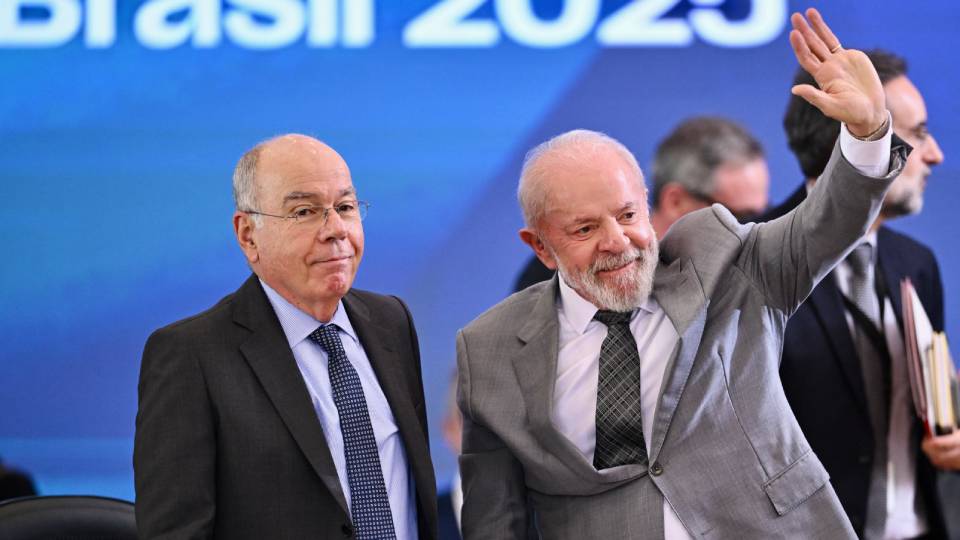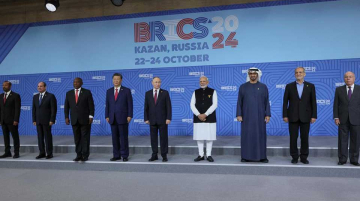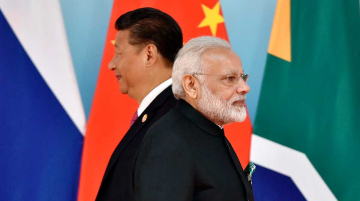
The 17th BRICS Summit kicks off this weekend in Rio de Janeiro, but preserving the group’s original mantra of non-alignment is proving to be a challenge for Brazil, the summit’s host.
Since returning to power, President Luis Inácio Lula da Silva has sought to maintain Brazil’s delicate foreign policy balance between the United States and China. This was more manageable during the Biden administration, but with Donald Trump back in office, the path forward has grown more complex.
In recent years, Brazil has carefully walked a tightrope. In 2024, it became the second founding BRICS member (after India) to formally decline participation in China’s Belt and Road Initiative. After Trump’s return to office, Lula traveled to Japan and Vietnam but notably skipped China.
But not long after, Lula decided to attend the 2025 China-CELAC Forum Ministerial Meeting—one of only three sitting Latin American heads of state to do so.
The upcoming BRICS Summit will once again test the limits of Brazil’s balancing act.
Since its establishment, the BRICS has served as a platform for its founding members—China, Russia, Brazil and India—to project themselves as legitimate leaders and voices of the Global South.
But the bloc’s rapid expansion in 2024 and 2025—welcoming Egypt, Ethiopia, Indonesia, Iran, and the United Arab Emirates into its ranks—has raised concerns in Brasilia. The fear: that BRICS is seen as a Sino-centric organization and not a Global South-oriented entity.
Brazil certainly sees it like this. Brasilia long opposed the group’s expansion precisely to avoid diluting its influence and further tilting the group toward China and Russia. With BRICS increasingly perceived by some as anti-Western, Brasilia fears that continuing to lean in that direction could jeopardize its important ties with Washington.
Brazil’s concerns are not unfounded. China’s leadership within the BRICS is self-evident. Beijing has the largest GDP of the group and is the primary trading partner of most of its members, with significant investments in key BRICS economies. The prospect of the Belt and Road Initiative also looms large, even though India and Brazil have expressly refused to join.
Brazilian diplomats are acutely aware of the risks. Being drawn into Beijing’s rivalry with Washington alongside the entire BRICS membership could undermine the country’s foreign policy independence.
Brazil’s foreign policy body, known as the Itamaraty, is attempting to hold the line: looking to push back on Beijing’s dominance within BRICS while also expanding partnerships outside of it in order not to be dependent on any one superpower.
This year’s summit reflects this goal. As the rotating BRICS president, Brazil is able to provide significant input on discussion items, with food security, sustainable development, and energy transition high on the agenda.
The broader focus includes global health cooperation, trade and finance, climate change, AI governance, peace and security, and institutional reform. These are areas where Brazil can lead from within, without appearing to serve another power’s agenda.
The looming threat of U.S. tariffs and the unorthodox approach of the Trump administration to international relations has forced Brazil to be extra careful in managing its relationship with Washington, particularly on issues pertaining to Beijing.
From Beijing’s perspective, this hedging could also be read as inconsistency or imbalance. In that regard, it is impossible to ignore that for the first time since becoming China’s leader, Xi Jinping is skipping the BRICS Summit.
Officially, the absence is attributed to a scheduling conflict: diplomatic sources pointed to the fact that Xi had already met with Lula twice in the past year, at the November 2024 G20 Summit and the May 2025 China-CELAC Forum.
But some analysts suggest that President Xi’s no-show at the summit indicates China’s waning interest in a summit that is unlikely to yield outcomes aligned with its priorities.
In moments of geopolitical flux, balance is hard to sustain. Brazil plays a crucial role in the regional dynamics of Latin America and the Caribbean. It is also uniquely positioned to influence the U.S.-China strategic competition at both the regional and broader global South levels.
The country has unusual leverage: China relies heavily on Brazil for food security, supplying more than 25% of its agricultural and livestock imports, including soybeans and beef. China also maintains significant positions in Brazil’s critical minerals and electric vehicles industries.
Brazil is aiming to emerge as a middle power that can help shape a livable equilibrium between the world’s two dominant powers. That ambition requires balance, flexibility, and above all, strategic autonomy. But in today’s polarized geopolitical landscape, it is worth asking whether that balancing act even remains possible.
Alonso Illueca is CGSP’s Non-Resident Fellow for Latin America and the Caribbean.








